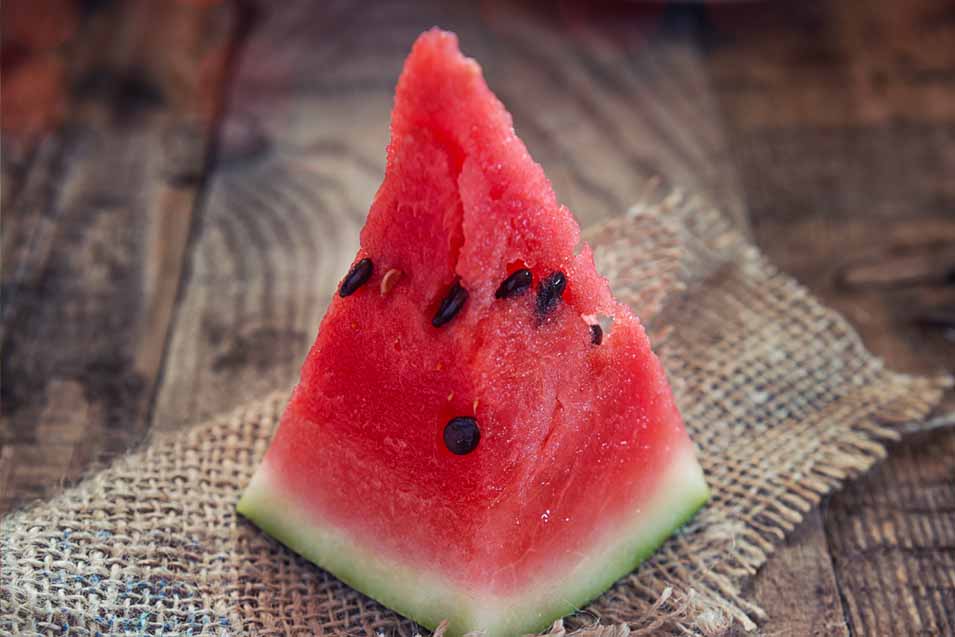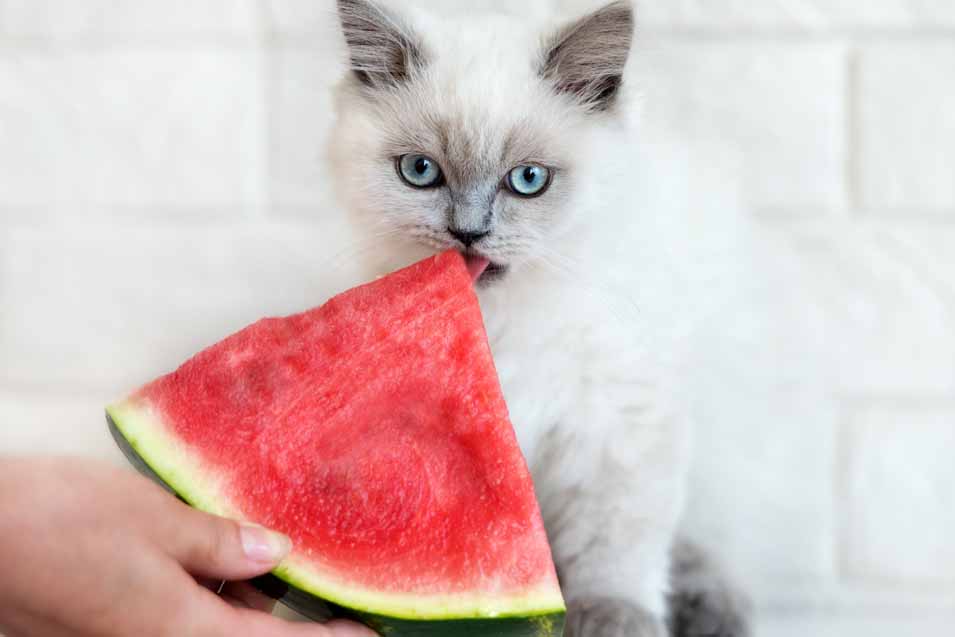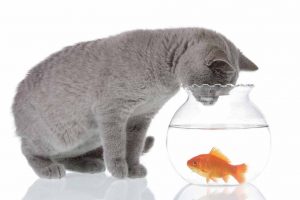Cats are curious by nature, and they will often try to munch on something that might be bad for them. Is watermelon part of the list of foods that will cause harm to a cat? Let’s find out in this article where we’ll see whether watermelon can give your cat any benefits or if it can cause severe health issues.
How Nutritious Are Watermelons?
As you can expect, water makes up most of a watermelon, but there are other things that you or your cat could get by eating a slice. One of the things that make the difference between this fruit and others is that it contains a healthy amount of lycopene, which has been found to strengthen bones.
There are many vitamins in watermelon and they range from Vitamin B1, A, C, and B6 to biotin and pantothenic acid. Moreover, it even contains minerals such as magnesium, copper, and potassium. Nothing beats some fresh and cold watermelon on a hot day, right? But can this fruit give your cat benefits or not?
First of all, cats are carnivores, which means that their diet should consist of protein. Ideally, this protein should come from animal sources. But one of the areas where watermelon is a winner is its water content. As you might know, if you are a cat parent, these feline buddies of ours aren’t known for their appetite in water. Since watermelon contains as much as 91.45 grams of water per every 100 grams, it can be a solution to keeping a cat well-hydrated even if she doesn’t necessarily want to.
Another positive aspect of allowing your cat to eat watermelon is that it contains a small amount of fiber. Sure, it might not be as much as the fiber present in some other fruits or veggies, but since many cats tend to become constipated on a regular basis, watermelon can help fix the issue. However, we would like to note that pumpkin is far better for cats as it is easily digestible and some varieties don’t have as much sugar.
How Much Watermelon Should a Cat Have in a Day?
Even though it is generally acknowledged as being safe for cats, watermelon shouldn’t be served to them every single day for lunch. Consider it a treat and give it to your feline companion only once in a couple of days or even once a week. As we have noted before, cats are carnivores, so the presence of too much fiber (or sugar, for that matter) in their systems could cause gastrointestinal complications.
Let’s not forget that watermelon is a fruit and that cats aren’t genetically engineered to have sugary treats. In case you make a habit out of feeding your pet watermelon (or any other fruit) too often, your cat might be exposed to diabetes and a variety of other health problems.
On the day you decided to offer your cat this treat, the amount should make up no more than 10% of his or her diet. Needless to say, the fruit needs to be cleaned properly, and no seeds or rind should be present in the small piece you present to your feline friend.

The Risks of Giving Your Cat Watermelon
Fortunately for them and unlike other pets (we’re looking at you, dogs!), cats pay attention to what they put in their mouths. They have extremely sensitive digestion and since their sense of taste and smell are very well-developed, as well, you aren’t going to catch a cat nibbling on something that might do her harm. But sometimes, like people, they are known to want a treat pretty badly.
The most dangerous part of watermelon are the seeds. They have a compound called cyanide, which is basically a type of poison. If your cat accidentally swallows a seed or worse, chews on it and releases the substance, you can expect a variety of clinical signs. The most common ones are vomiting and diarrhea. If a cat has ingested several seeds, he or she might even need a blood transfusion.
Because cats are so small and they have sensitive metabolisms, they are significantly more vulnerable to cyanide poisoning compared to humans and other larger animals. The right way of going about things if you noticed that your cat has eaten watermelon seeds would be to get in touch with your vet as soon as possible. Since this is a critical situation, if the veterinarian doesn’t pick up the phone, take your cat to an emergency vet in your area as fast as you can.
The rind doesn’t cause any particular health problems per se, but since it is denser and it has a lot more fiber, it could cause digestive issues. The cases where the cat actually eats it are very rare as the animal doesn’t usually like the consistency of the rind anyway.
We’ve already mentioned diabetes, but we would like to add that since it is a fruit, it is strictly prohibited to feed it to cats that already suffer from this metabolic dysfunction or to senior cats who have a harder time metabolizing sugar.
Conclusion
So, can cats eat watermelon? Yes, they can. It’s not the ideal type of food for them, but it does contain fiber and plenty of water, so you can give it to your cat either as a treat or when you’ve noticed that he or she is constipated. Cats are meat eaters, after all, so keep that in mind whenever you feel tempted to give them anything that’s a part of the human diet.






